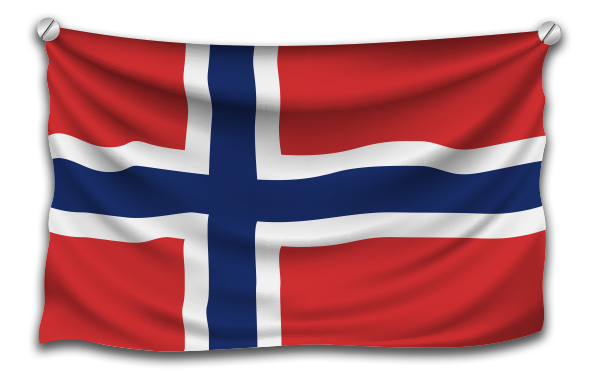ICES High School Study Abroad
Norway
Program Schedule
Year:
August – June
January – November
Price: $16,000 (flights and insurance included)
Semester:
August – December
January – June
Price: $14,000 (flights and insurance included)
Prices are subject to change
LEARN MORE ABOUT STUDY ABROAD
SUBMIT INTEREST IN STUDY ABROAD

High School Study Abroad Norway
The kingdom of Norway is a constitutional monarchy in Northern Europe that occupies the western portion of the Scandinavian Peninsula. It is a beautiful country with deep blue fjords and high mountains. The Norwegians are very proud of their country, and their Constitution Day on May 17th is one of the most important holidays and it is very much celebrated in all parts of the country. Norwegians are known to be a friendly people with a good sense of humor.
Norway Country Information
Situated: Northern Europe, Scandinavia
Area: 386.958 sq km
Inhabitants: 5.1 million
Capital: Oslo
Language: Norwegian (Bokmål and Nynorsk)
National day: May 17
Celebrities: AHA, Lene Marlin, Marion Ravn, Kurt Nilsen, Ylvis, Petter Northug,
NORWAY – “THE LAND OF THE MIDNIGHT SUN”
Norway is the land of the midnight sun, the brown cheese, the moose, the northern lights, the reindeer and the “lusekofter”. A lusekofta is a warm woolen cardigan, knitted in beautiful traditional designs. The “lusekofter” and other equally thick sweaters are much appreciated, since much of the country of Norway is situated north of the Arctic Circle. The name “Norway” itself means “the way to the north.” To the east, Norway shares a border with Russia, Finland and Sweden, whilst to the west, the country faces the Atlantic Ocean. Norway is a country of extremes. Ranging from the rugged mountains to the solemn beauty of the fjords, from the emptiness of North Cape to the beaches of the south. In the north you can experience the midnight sun in June and 24 hours of darkness in December. Mountains and sea dominate this country on the western edge of the Scandinavian peninsula. The coast is punctuated by fjords, which can be as deep as 3,700 feet (1,000 meters), and is dotted with islands.
School Life
Norwegians start school at the age of six. Everybody has to complete 10 years of elementary school. The school year is divided into two semesters, the fall semester starts in August and ends in December / January. The spring semester starts in January and ends in June. High school consists of three years, and this is a preparation for higher education. The students have a certain number of compulsory subjects such as Math, English, Norwegian, history and social science, but they can also choose between a range of subjects depending on their interests and depending on the schools. There are certain educational programs to attend, for example the natural science program, social science program, language program (English, French, German or Spanish are common languages at most schools), business- and economics, arts, media and communication and sports programs just to mention a few.
The relation between teachers and students is usually friendly and informal and the grading range is 1–6, where 6 is the highest grade. School normally starts at eight or nine o’clock in the morning, and ends between one and four in the afternoon. Many students would like to come to Norway every year and the school spots are very limited. Therefore, all exchange students must be open and thankful to the schools and follow the curriculum that the school is offering. If you have a special request, please contact the partner organization office in Oslo or your local area representative and we will guide you further. We will do everything we can to accommodate your requests, but we cannot guarantee anything since the academic decisions are up to the school.
All schools normally have physical education on the schedule. Other sports activities take place after school, in the local community, and will have to be arranged by you and the host family whilst in the host country. However, we encourage all exchange students to express what type of activities they enjoy in their application since this sometimes can contribute to a successful Host Family match. School transportation varies and many students ride public transportation to and from school at their own expense. Many schools have a lunch cafeteria where you can buy lunch but the most common tradition in Norway is to bring a packed lunch “matpakke”.
Most Norwegians know English very well but it is of greatest importance to understand that all teaching is in Norwegian only. Most exchange students that come to Norway speak languages that are very different from Norwegian and it is important to understand that this will be a challenge in the beginning. Therefore, we strongly recommend that you study Norwegian in your home country prior to your arrival in Norway. Measures like this will help you to follow basic conversation both in school and whilst making new friends. It is important to respect your teachers and fellow students and school attendance is strictly obligatory. The demands on you as an exchange student will be the same as on other students even if the teachers will understand that the language is a challenge in the beginning.
Host Family Life
All host families are screened before a student can move in to their home. All host families volunteer to host students from different parts of the world and you should be prepared to be placed either in the south near the beautiful Norwegian archipelago, in the north where you can experience the famous aurora, in the west where the deep fjords and glaciers are found, or in the east near the capital Oslo.
The average Norwegian family consists of a mother, father and two children. However, there are host families without children as well as single parents and they are all equally appreciated. Traditionally, Norwegian families are not known to be actively religious but many Norwegian families go to church on holidays. In their everyday life, people are busy with work, school and activities. Most families have dinner together every day, and parents try to spend as much time as possible with their children. Most Norwegian children are taught to be independent and are encouraged to make their own decisions from an early age. In the upbringing of the children a lot of emphasis is placed on being active, independent and creative.
As an exchange student, it will be expected of you to help out in the host family’s home like all other family members and it is important to show the host family that you take initiative to participate in the family life. Norwegian families are often very active families that engage in sports and outdoor activities such as hiking and cross-country skiing. Being active, it is very important that you take care of your hygiene and it is common to shower every day even if you don’t do sports.
As mentioned above, Norwegians like to consider themselves a very active people that love to be outdoors. Skiing is a very popular weekend-activity in the winter, while hiking, boating and swimming take up a lot of people’s time in the summer. Soccer is a big sport amongst both boys and girls and handball is also very popular in many Norwegian communities. If you like other sports such as tennis, golf, basketball, volleyball, aerobics or ice hockey, you will most likely find clubs and organizations to join in your local community. In addition to sport clubs, there are many organizations for music, singing, dancing, drama, and arts and crafts. Norwegians enjoy getting together for celebrations, both in public and at home and the bigger towns offers amazing opportunities when it comes to youth clubs as well as cultural events like cinema, theatre and concerts. We recommend about 1,500 – 3,000 NOK for pocket money per month.
Program Extras
Contact the Study Abroad team for information on program extras currently available for additional costs.
Program Requirements
Students must be at least 15 years and 8 months old if starting the program in August. Students starting the program in January must be at least 16 years old. No student may be more than 18 years old at any time during the program.
While there is no official language requirement for students, it is strongly recommended that students have studied Norwegian sufficiently to have at least a basic knowledge of the language as a foundation for a successful exchange experience.
Visas
Students in short-term programs (less than 90 days) are not required to apply for a student visa. Students in programs longer than 90 days must apply for a student visa in person at their nearest Norwegian visa issuing office, prior to arrival in Norway.
About ICES
We are a nonprofit organization committed to international, educational student exchange. Our goal is to promote cultural awareness and international understanding by offering quality, educational and cultural programs for students, host families and schools. Our staff is dedicated to creating a positive exchange experience for all program participants.
Additional Study Abroad Program Information
Study Abroad Program Process Guide
Study Abroad Program FAQs
Other Study Abroad Destinations
Testimonials by American Students
Have you finished your initial research about the Study Abroad Program in Norway?
Are you ready to take the next step?
Please go ahead and submit your program interest to the ICES office by using the ‘submit’ button below.
To learn more about the Study Abroad Program you may click on any of the links to the left.
SUBMIT YOUR INTEREST IN STUDY ABROAD

